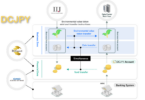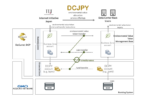Newlight Technologies’ fashion brand Covalent announced it will implement blockchain technology for its carbon-negative fashion accessories line. The sunglasses and leather wallets appear to use synthetic plastics but are made of AirCarbon, a natural biodegradable polymer, PHB. Cognition Foundry developed the blockchain solution on the IBM Blockchain Platform.
Before exploring the blockchain solution, it’s worth understanding why AirCarbon is considered carbon-negative by the Carbon Trust. According to Newlight, “natural microorganisms in the ocean consume air and greenhouse gas dissolved in salt water to produce a meltable energy storage material inside of their cells called PHB.” And PHB makes this natural type of plastic, which is used in Covalent fashion accessories and by other companies in dissolvable surgical stitches. Newlight says its method of producing one kilogram of PHB absorbs 88 kilograms of CO2e greenhouse gas. AirCarbon was named “Biomaterial of the Year” by the Nova Institute in 2013.
So PHB products could replace the use of plastics, reduce greenhouse gases during production and are biodegradable. However, we wondered whether some of those greenhouse gases might be released when the material biodegrades (we’ll update with the answer). One of the reasons why PHBs haven’t gained more mainstream traction is they are relatively expensive to produce compared to synthetic plastics.
Meanwhile, a recent study carried out by IBM concluded that 57% of consumers surveyed were willing to change their shopping habits for more environmentally conscious consumption behavior. However, other research using U.S. and Canadian regulatory frameworks for environmental claims found that more than 95% of evaluated products in retail used some form of greenwashing in labels. And more than 70% of products lack proof of their green-friendly or sustainability claims.
Covalent addresses this issue by enabling consumers to track the carbon footprint of its products through blockchain technology. “Our goal was to give people the information they need to decide what kind of impact they want to make,” said Newlight CEO Mark Herrema.
Each Covalent product has a unique 12-digit number printed on the packaging, representing the creation time or ‘Carbon Date’. Customers use the number on Covalent’s website to show the product’s creation process and associated carbon footprint of each step. Furthermore, each process in the supply chain is stored in an immutable record on blockchain.
“Blockchain’s ability to foster trust gives Covalent’s customers a better understanding of how their products were made,” said Alistair Rennie, General Manager of IBM Blockchain. “In turn, Covalent can create a better customer experience, and a better opportunity for consumers to understand how their choices impact the environment.” The solution is hosted on IBM LinuxOne and uses Hyperledger Fabric.
Meanwhile, various initiatives aimed at reducing the manufacturing carbon footprint are implementing blockchain solutions in their processes. Recently the Green Chain Initiative launched aiming to increase renewable energy in manufacturing. Additionally, the Interwork Alliance is creating standards for carbon credits and last month a group of cryptocurrency firms launched a tradable carbon token.






